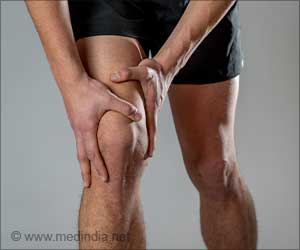- Prioritize calcium-rich foods and vitamin D intake
- Limit sodium, caffeine, and alcohol; avoid smoking
- Engage in regular weight-bearing and resistance exercises
As we age, our bones undergo changes that can lead to decreased bone density, making them more prone to fractures and breaks. However, there are proactive steps we can take to maintain bone health and minimize the risk of osteoporosis and related complications. Incorporating a combination of proper nutrition, lifestyle adjustments, and physical activity can significantly contribute to bone strength and overall well-being (1✔ ✔Trusted Source
Tips to Keep Your Bones Healthy as You Age
).
Essential Tips for Maintaining Bone Health
1. Prioritize Calcium-Rich Foods
Calcium is a crucial mineral for maintaining bone health, as it is a primary component of bone tissue. Incorporating calcium-rich foods into your daily diet can help support bone density. Aim to include these foods regularly to ensure adequate calcium intake.
If dietary sources alone are insufficient, consider speaking with your healthcare provider about calcium supplements to meet your daily requirements.
Foods Rich in Calcium:
- Milk
- Yogurt
- Cheese
- Kefir
- Fortified plant-based drinks (such as rice, almond, or soy drinks)
- Fortified orange juice
- Beans
- Tofu
- Nuts
- Fish (such as canned salmon with bones)
- Leafy greens (such as bok choy, broccoli, or collard greens)
2. Ensure Sufficient Vitamin D Intake
Vitamin D plays a vital role in calcium absorption, making it essential for bone health. Sunlight exposure remains the primary source for most individuals. However, aging, limited sun exposure, and certain geographic locations may hinder vitamin D synthesis in the skin.
Supplementation with vitamin D is often recommended, particularly for older adults who may have difficulty meeting their needs through diet and sun exposure. For adults over 50 it is advised to take a daily vitamin D supplement of 400 IU to support bone health.
Foods Rich in Vitamin D:
- Milk
- Fortified plant-based drinks (such as rice, almond, or soy drinks)
- Fortified orange juice
- Fatty Fish (such as salmon or sardines)
- Margarine
- Egg yolks
- Fortified yogurts
3. Maintain a Balanced Diet
A well-rounded diet that includes a variety of nutrient-rich foods is essential for overall health and bone maintenance.
Incorporate plenty of fruits, vegetables, legumes, nuts, seeds, whole grains, and lean protein sources into your meals. These foods provide essential nutrients such as potassium, vitamin K, magnesium, and protein, which support bone strength and density.
Advertisement
4. Limit Sodium Intake
Excessive sodium consumption can lead to calcium loss from bones, compromising bone density over time. To mitigate this risk, aim to reduce your intake of high-sodium foods and use salt sparingly in cooking and at the table. Opt for herbs, spices, and other flavor-enhancing alternatives to season your meals.
Reading food labels can help you identify and choose lower sodium options, with the goal of limiting daily sodium intake to 2300 mg or less.
Advertisement
5. Moderate Caffeine and Alcohol Consumption
Both caffeine and alcohol can negatively impact bone health when consumed in excess. Caffeine can interfere with calcium absorption, while alcohol can disrupt calcium balance and affect bone-building hormones.
Limit caffeine intake to no more than 400 mg per day, equivalent to roughly three cups of brewed coffee. Additionally, moderate alcohol consumption recommends no more than two standard drinks per day for women and three for men.
6. Avoid Smoking
Smoking is detrimental to bone health, as it reduces blood supply to bones and interferes with calcium absorption. Additionally, smoking negatively affects bone-building cells and hormones, leading to decreased bone density and increased fracture risk.
Quitting smoking at any age can benefit bone health and overall well-being. Seek support and resources to help you quit if you currently smoke or use tobacco products.
7. Stay Physically Active
Regular exercise is crucial for maintaining bone strength, muscle mass, and balance, all of which contribute to overall bone health and fracture prevention. Engage in weight-bearing exercises such as walking, dancing, and tennis, as well as resistance training and flexibility exercises like yoga and tai chi.
Make physical activity a priority in your daily routine, aiming for at least 150 minutes of moderate-intensity aerobic activity per week, supplemented with muscle-strengthening activities on two or more days per week.
By incorporating these tips into your lifestyle, you can support bone health and minimize the risk of osteoporosis and fractures as you age. Prioritize a balanced diet, regular exercise, and healthy lifestyle habits to keep your bones strong and resilient for years to come.
Reference:
- Tips to Keep Your Bones Healthy as You Age – (https://www.hrh.ca/patient-education/005233_Keeping%20Bones%20Healthy%20as%20You%20Age.pdf)
Source-Medindia










